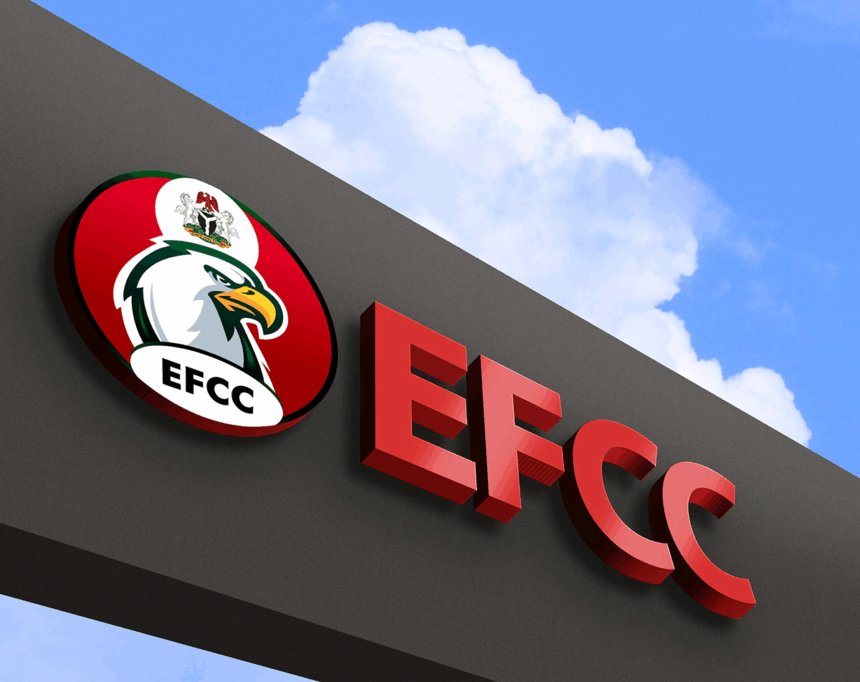-
EFCC says ₦100bn from corruption recoveries channelled into student loan, consumer credit schemes.
-
Agency records ₦566bn, $411m recoveries, 7,503 convictions in two years.
-
Olukoyede-led EFCC expands anti-cybercrime operations, reforms, and global partnerships.
The Economic and Financial Crimes Commission (EFCC) has revealed that ₦100 billion recovered from corruption cases was invested in the Federal Government’s student loan and consumer credit schemes, reinforcing its renewed focus on transparency and accountability.
According to Mr. Wilson Uwujaren, Director of Public Affairs, the move reflects the Commission’s commitment to ensuring recovered assets are redirected into national development projects. He disclosed this while presenting “Two Years of the EFCC Under Olukoyede: A Mid-term Report” on Thursday in Abuja, marking the second anniversary of Mr. Ola Olukoyede’s leadership.
ATTENTION: Click “HERE” to join our WhatsApp group and receive News updates directly on your WhatsApp!
Uwujaren stated that between October 2023 and September 2025, the EFCC recovered ₦566.3 billion, $411.5 million, £71,306, €182,877, and other currencies.
“Part of the funds recovered by the Commission was invested in critical social investment programmes — the student loan scheme and the consumer credit scheme. A total of ₦100 billion was invested in these two schemes,” he said.
He added that recovered funds also benefited several agencies, including the Niger Delta Development Commission (NDDC), Federal Inland Revenue Service (FIRS), Asset Management Corporation of Nigeria (AMCON), and the National Health Insurance Authority (NHIA).
Uwujaren highlighted that the EFCC secured 7,503 convictions, filed 10,500 cases, and investigated over 29,000 petitions during the review period.
“Performance in law enforcement is measured by convictions and recoveries. On these two counts, the EFCC’s record under Olukoyede is exceptional,” he affirmed.
He revealed that the Commission obtained final forfeiture of 1,502 real estate assets, including 753 duplexes in Lokogoma, Abuja, and Nok University, now the Federal University of Applied Sciences, Kachia, Kaduna State.
Uwujaren also said the EFCC revived major cases involving prominent figures such as Fred Ajudua, Haliru Bello Mohammed, Sambo Dasuki, and Ngozi Olojeme, underscoring the agency’s renewed vigour.
The Commission’s anti-cybercrime drive, he noted, led to the arrest of 792 suspects, including 192 foreigners, in a December 2024 operation in Lagos, aimed at dismantling crypto and investment scam rings.
“This development sends a strong message that Nigeria will not tolerate foreigners turning it into a safe haven for cybercrime,” Uwujaren said.
READ ALSO: EFCC Insists Okowa’s Defection to APC Won’t Halt Corruption Probe
He added that the EFCC has deepened cooperation with global law enforcement partners — including the FBI, UK’s National Crime Agency (NCA), Royal Canadian Mounted Police, and Spanish Police — resulting in the return of stolen assets to victims in Spain, Canada, and the United States.
Uwujaren also announced the creation of a Fraud Risk Assessment and Control (FRAC) Directorate, established to monitor budget performance in ministries, departments, and agencies, preventing fund diversion and leakages.
“Under Olukoyede, the EFCC prioritises prevention as a cheaper alternative to enforcement. That is why we created the FRAC to strengthen transparency in public finance,” he explained.
He disclosed that 55 officers were dismissed in the last two years for misconduct, stressing that the EFCC Chairman believes “you cannot use corruption to fight corruption.”

